
Kieron Burke is a distinguished professor in both the chemistry and physics departments at UC Irvine. His research focuses on developing a theory of quantum mechanics called density functional theory. Density functional theory is a way of solving the equations of quantum mechanics for the electrons in any substance. Because DFT equations can be solved relatively quickly on modern computers, DFT has become a very popular tool in many branches of science, especially chemistry and materials science. Last year, at least 30,000 scientific papers used DFT. For example, hydrogen sulphide was predicted by DFT calculations to have a high superconducting temperature under pressure, and a year later, it was tested and became the world-record holder, at 203K.
Prof Burke works on developing all aspects of DFT: formalism, extensions to new areas, new approximations, and simplifications. His work is heavily used in materials science, chemistry, matter under extreme conditions (such as planetary interiors or fusion reactors), magnetic materials, molecular electronics, and so on. He has given talks in theoretical chemistry, condensed matter physics, applied mathematics, computer science, and even organic chemistry. His graduate students and postdocs usually come from either the chemistry or physics departments, but his undergraduate researchers also come from math, computer science, and engineering. He believes that the most impactful advance in 20th century physics was the development of quantum mechanics, without which we cannot understand chemistry and materials. He also believes that there are few problems in theoretical science whose solution has more immediate impact than the improvement of DFT. The more accurate, reliable, and widespread DFT calculations become, the sooner we will have novel materials and drugs, and the more we will understand both our own planet and others.
Prof Burke is also a fellow of the American Physical Society, the British Royal Society for Chemistry, and the American Association for the Advancement of Science, and a member of the International Academy of Quantum Molecular Sciences. He is known around the world for his many educational and outreach activities. According to Google scholar, his work has been cited over 200,000 times.
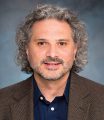
Jeffrey Hittinger is the Director of the Center for Applied Scientific Computing at Lawrence Livermore National Laboratory. His research addresses the development and application of advanced discretization methods for partial differential equations underlying multiphysics numerical simulations, particularly for plasma physics and including high-order finite-difference and finite-volume methods, parallel computing strategies, adaptive mesh refinement techniques, a posteriori error estimation, and finite precision floating-point representations. He was a recipient of the Department of Energy Computational Science Graduate Fellowship and of a National Science Foundation Graduate Research Fellowship, and he was one of the first recipients of the Frederick A. Howes Scholar in Computational Science award. Hittinger earned his PhD from the University of Michigan in 2000 and received his undergraduate education at Lehigh University.
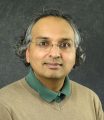
Kiran S. Kedlaya is the Stefan E. Warschawski Professor of Mathematics at University of California San Diego. His research interests are in number theory and algebraic geometry, including computational/experimental aspects and other interactions with computer science. Kedlaya has been an NSF PECASE awardee, a Sloan Fellow, an ICM invited speaker, and a Guggenheim Fellow.
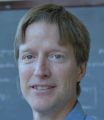
Richard W. Kenyon is the Erastus L. DeForest Professor of Mathematics at Yale University. He received his PhD in 1990 at Princeton University under the direction of William Thurston. Kenyon held postdoctoral positions at the Institut des Hautes Études Scientifiques and then a position at CNRS in Grenoble, Lyon, and Paris. In 2004 he held a Canada Research Chair at the University of British Columbia. From 2005 to 2017 he was full professor at Brown University. He won a CNRS bronze medal in 1999, the Rollo Davidson prize in 2001, and the Loeve prize in probability in 2007. His research interests are in statistical mechanics, combinatorics, and discrete geometry.
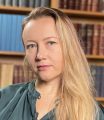
Svitlana Mayboroda is the McKnight Presidential Professor of Mathematics at the University of Minnesota. Her work lies at the interface between partial differential equations, analysis, and geometric measure theory, and has enjoyed wide ranging applications in condensed matter physics, cold atoms systems, research and engineering of organic and nonorganic semiconductor materials and devices. Her work has been recognized by Alfred P. Sloan Research Fellowship, NSF CAREER award, AWM-Sadosky Prize in Analysis. She was an ICM speaker in 2018 and is a Fellow of the American Mathematical Society. She is the founder and the Director of the Simons Collaboration on Localization of Waves.
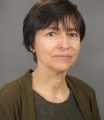
Marina Meila is Professor of Statistics at the University of Washington and Senior Fellow of the University of Washington’s eScience Institute. Her long term interest is in statistical learning, particularly the discovery of geometric and combinatorial structure in data, efficient algorithms, and developing guarantees and validation methods for unsupervised learning with minimal or no assumptions about the data generating process. She has collaborated with scientists in applied inverse problems, materials science and theoretical chemistry. Meila holds a MS degree in Electrical Engineering from the Polytechnic Institute of Bucharest, and a PhD in Computer Science and Electrical Engineering from the Massachusetts Institute of Technology.
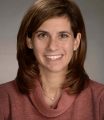
Dr. Meyers is the Cooley Centennial Professor in biology and statistics at the University of Texas at Austin. For over 20 years, Dr. Meyers has pioneered the application of network theory, data-driven models, and machine learning to improve the detection, forecasting and control of emerging viral threats. She is the founding director of the UT COVID-19 Modeling Consortium, which has provided global leadership throughout the pandemic though multiple COVID-19 forecasting dashboards and critical analyses to support pandemic surveillance, response, testing and school opening strategies nationwide. Dr. Meyers received her BA in mathematics and philosophy at Harvard University and PhD in biology at Stanford University. She was named as one of the top 100 global innovators under age 35 by the MIT Technology Review in 2004 and received the Joseph Lieberman Award for Significant Contributions to Science in 2017.
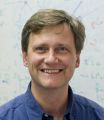
Klaus-Robert Müller is chair of the machine learning group at TU Berlin, directs the Berlin Center for Machine Learning, co-directs the Berlin Big Data Center, and holds a distinguished professorship at Korea University in Seoul. In 1999, he received the Olympus Award from the German pattern recognition society DAGM; in 2006, the SEL Alcatel communication award; in 2014, the Science Prize of Berlin awarded by the Governing Mayor of Berlin; and in 2017, the Vodafone Innovations Award. He is member of the German National Academy of Sciences Leopoldina and the Berlin Brandenburg Academy of Sciences, and external scientific member of the Max Planck Society (MPII). He serves on various editorial boards of Computational Statistics, IEEE Transactions on {Biomedical Engineering, Information Theory and Neural Networks and Learning Systems}, and Journal of Machine Learning Research, and on organization committees of various international conferences. His research areas include statistical learning theory for neural networks, support vector machines and ensemble learning techniques. He contributed to the field of signal processing working on time-series analysis, statistical denoising methods and blind source separation. His application interests also include brain computer interfacing, genomic data analysis, computational chemistry and atomistic simulations.

Jelani Nelson is a Professor of Electrical Engineering and Computer Sciences at UC Berkeley, interested in randomized algorithms, sketching and streaming algorithms, dimensionality reduction, and differential privacy. He is a recipient of the Presidential Early Career Award for Scientist and Engineers (PECASE), and a Sloan Research Fellowship. He is also Founder and President of AddisCoder, Inc., a nonprofit that provides algorithms training to high school students in Ethiopia and Jamaica.

Dr. Tchetgen Tchetgen is Luddy Family President’s Distinguished Professor and Professor of Statistics in the Department of Statistics at The Wharton School of the University of Pennsylvania. He is also Adjunct Professor of Biostatistics and Epidemiologic Methods at Harvard University where he spent ten years as faculty prior to joining Wharton; and an Amazon Scholar, actively collaborating with Amazon scientists on challenging business applications at the intersection of causal inference and machine learning. Dr. Tchetgen Tchetgen has distinguished himself as a leading statistical scientist, having made numerous influential contributions to the development and application of statistical methods for missing data, causal inference, and semiparametric methods with applications in social, genetic and infectious disease epidemiology. In addition to his myriad of research accomplishments, Dr. Tchetgen Tchetgen is a dedicated teacher and mentor who has published over 200 papers in top statistical, epidemiological and Medical journals, produced an impressive record of grant funding for collaborative interdisciplinary research projects, and has generously and tirelessly served the statistical profession, both nationally and internationally.
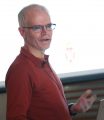
Jean-Luc Thiffeault is a Professor of Mathematics at the University of Wisconsin – Madison. He received his PhD in Physics from the University of Texas – Austin in 1998. His research interests include transport and mixing in fluid dynamics, topology and dynamical systems, and microswimmers as active matter. He has given the AMS Invited Address at the SIAM annual meeting, as well as plenary talks at AMS, SIAM, and APS-Division of Fluid Dynamics meetings.

Ryan Tibshirani is a Professor of Statistics at the University of California, Berkeley. From 2011-2022, he was a Professor of Statistics and Machine Learning at Carnegie Mellon University. He did his Ph.D. in 2011 in Statistics at Stanford University, and B.S. in 2007 in Mathematics also at Stanford University. His research interests lie broadly in statistics, machine learning, and optimization. A major applied focus is on tracking and forecasting epidemics, which he does as a Principal Investigator of the Delphi group. He is also an Amazon Scholar in AWS AI Labs. He has held various editorial and professional service positions, including Editor-in-Chief of Foundations and Trends in Machine Learning, and is the recipient of various awards and honors, such as the Mortimer Spiegelman award in 2022, and IMS Fellowship in 2022.

Rachel Ward is the W.A. “Tex” Moncrief Distinguished Professor in Computational Engineering and Sciences — Data Science and Professor of Mathematics at UT Austin. She is recognized for her contributions to stochastic gradient descent, compressive sensing, and randomized linear embeddings. From 2017-2018, Dr. Ward was a visiting researcher at Facebook AI Research. Prior to joining UT Austin in 2011, Dr. Ward received the PhD in Computational and Applied Mathematics at Princeton in 2009 and was a Courant Instructor at the Courant Institute, NYU, from 2009-2011. Among her awards are the Sloan research fellowship, NSF CAREER award, 2016 IMA prize in mathematics and its applications, 2020 Simons fellowship in mathematics. She was also an invited speaker at the 2022 International Congress of Mathematicians.
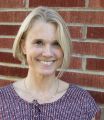
Amie Wilkinson is a Professor of Mathematics at the University of Chicago working in ergodic theory and smooth dynamical systems. Wilkinson was the recipient of the 2011 Satter Prize in Mathematics. She gave an invited talk at the International Congress of Mathematicians 2010 in Hyderabad. In 2013 she became a fellow of the AMS.

Daniela Witten is Professor of Statistics and Biostatistics at University of Washington, and the Dorothy Gilford Endowed Chair in Mathematical Statistics. She develops statistical machine learning methods for high-dimensional data, with a focus on unsupervised learning. Witten is the recipient of an NIH Director’s Early Independence Award, a Sloan Research Fellowship, an NSF CAREER Award, a Simons Investigator Award, a David Byar Award, a Gertrude Cox Scholarship, an NDSEG Research Fellowship, and the 2019 Spiegelman Award from the APHA. She is also co-author of the popular textbook Introduction to Statistical Learning. Witten received her BS in Math and Biology at Stanford University in 2005, and a PhD in Statistics at Stanford in 2010.

Lin Lin is a Professor in the Department of Mathematics at UC Berkeley, and a Faculty Scientist in the Mathematics Group at Lawrence Berkeley National Laboratory. His research focuses on solving quantum many-body problems by employing both classical and contemporary methods. These techniques prove valuable across various domains, including quantum chemistry, quantum physics, materials science, and quantum information theory. He has received the Sloan Research Fellowship (2015), the National Science Foundation CAREER award (2017), the Department of Energy Early Career award (2017), the (inaugural) SIAM Computational Science and Engineering (CSE) early career award (2017), the Presidential Early Career Awards for Scientists and Engineers (PECASE) (2019), the ACM Gordon Bell prize (Team) (2020), and the Simons Investigator in Mathematics award (2021).
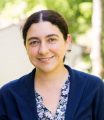
Carina Curto is a Professor of Mathematics at Brown University. She received an A.B. in Physics from Harvard University in 2000 and a Ph.D. in Mathematics from Duke University in 2005. During her postdoctoral years at Rutgers and NYU, she transitioned to research in theoretical and computational neuroscience. Before moving to Brown, Curto was Professor of Mathematics at Penn State University. Her research focuses on theory and analysis of neural networks and neural codes, motivated by questions of learning, memory, and sequence generation in cortical and hippocampal circuits. Curto’s work uses and develops tools in applied algebra, geometry, topology, and dynamical systems. Her honors include a Sloan Research Fellowship (2011), a Woodrow Wilson Career Enhancement Fellowship (2012), a Simons Fellowship (2021), and a Faculty Scholar Medal (2020), in addition to numerous NSF and NIH research awards.